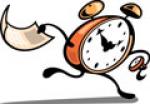How to Use Assessment Strategies
Assessment need not take time away from learning; assessments can be learning experiences in themselves. Active assessment strategies enhance student content understanding and promote skills that will be beneficial to students throughout their lives. The ability to see the big picture, develop effective oral and written reports and the ability to work cooperatively with their peers are skills that are promoted by active assessment. In this module you can access the following Assessment strategies:
- Scoring Rubrics help students focus on content and Instructional Rubrics to guide them in developing presentations, written and oral reports.
- Concept Maps assist students in "seeing the big picture".
- Portfolios document student learning and improve student metacognition.
- Rebecca Teed's Starting Point module Co-operative Learning: Assessment contains strategies that encourage peer-to-peer learning, individual and group grading.
The SERC Cutting Edge Assessment site also includes information on the following assessment strategies:
- ConcepTests - Conceptual multiple-choice questions useful in large classes.
- Knowledge Survey - Students answer whether they could answer a survey of course content questions.
- Exams - Find tips on how to make exams better assessment instruments.
- Oral Presentations - Tips for evaluating student presentations.
- Peer Review - Having student assess themselves and each other.
- Written Reports - Tips for assessing written reports.
- Other Assessment Types including concept sketches, case studies, seminar-style courses, mathmatical thinking and performance assessments.
Click on the link to see a short glossary of assessment terms.




